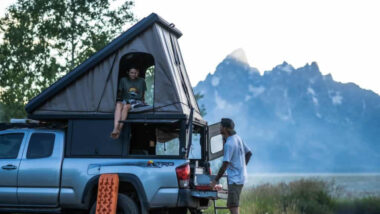Table of Contents Show
Recently, RVing has become one of the most popular forms of travel. The influx of people purchasing vans, campers, and 5th wheels is most likely a result of cabin fever from being cooped up. And recreational vehicles provide safe, self-contained homes that can take you anywhere.
But with all of the excitement around this lifestyle come some complications. For instance, with so many new RVs on the road, established campgrounds have started hanging out the “No Vacancy” signs.
Let’s take a look at what is driving this phenomenon and find some alternatives if you can’t find a campsite.
Why Are Campgrounds Full?
Many campgrounds take reservations a year in advance for the high season. These may include destinations where ‘snowbirds’ congregate during the winter, as in southern Arizona, Texas, and Florida.
In this instance, some campers plan on coming to the same resort every year. They may make their reservations for next year during this year’s stay.
Campgrounds with a central reservation system like those on Recreation.gov usually have a six-month window to secure a site. And with so many more campers vying for the same number of campsites, it becomes extremely difficult to get confirmed reservations.
Most of the chaos surrounding full campgrounds is due to the increase in the number of people RVing. With the onset of the pandemic, many people wanted to escape their homes and see something new. And for some, the fear of illness drove them to RV travel to not worry about contagions.
Put these motivations together, and you can see how a 33% increase in new RV sales occurred by the end of 2021. Add that to the number of RVs already on the road, and you’ve got a simple explanation for overflowing campgrounds: too much demand and too little supply.
Keep Reading: To learn more about this slow-moving industry, read The World Has Changed but the RV Industry Hasn’t.
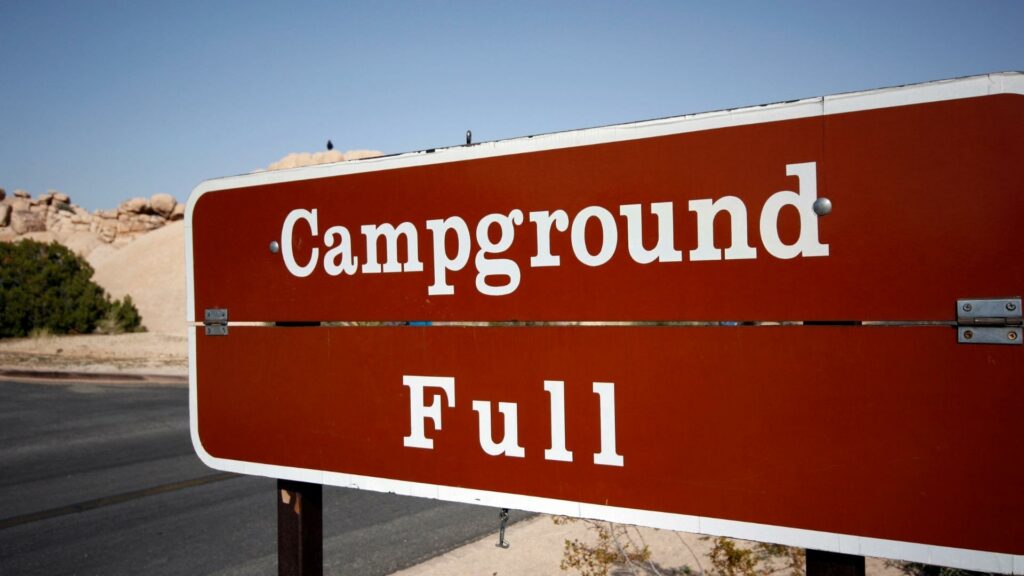
Will It Be Harder to Find a Campsite This Fall Than Last Year?
All signs point to a difficult fall in popular locations, as many campgrounds in snowbird locations already have their bookings complete through April 2023.
But a lot of variables go into booking a campsite!
For instance, if you have a smaller vehicle, you may have a better chance of finding an open site. If you travel to destinations during the off-season, you will find better camping opportunities.
And if you have flexibility, you may discover campsites that open up at the last minute.
Pro Tip: Make sure to read our article on First-Come-First-Serve Camping Tips To Always Get A Spot before heading out this camping season!
How Far in Advance Should You Make Reservations?
If you know where you will be a year from now, by all means, make your reservations. If you are more of a spontaneous traveler, you may have to find other means of camping, like those listed below.
In general, try to plan a trip at least six months early. And sooner than that, you’ll have to camp on the side of the road.
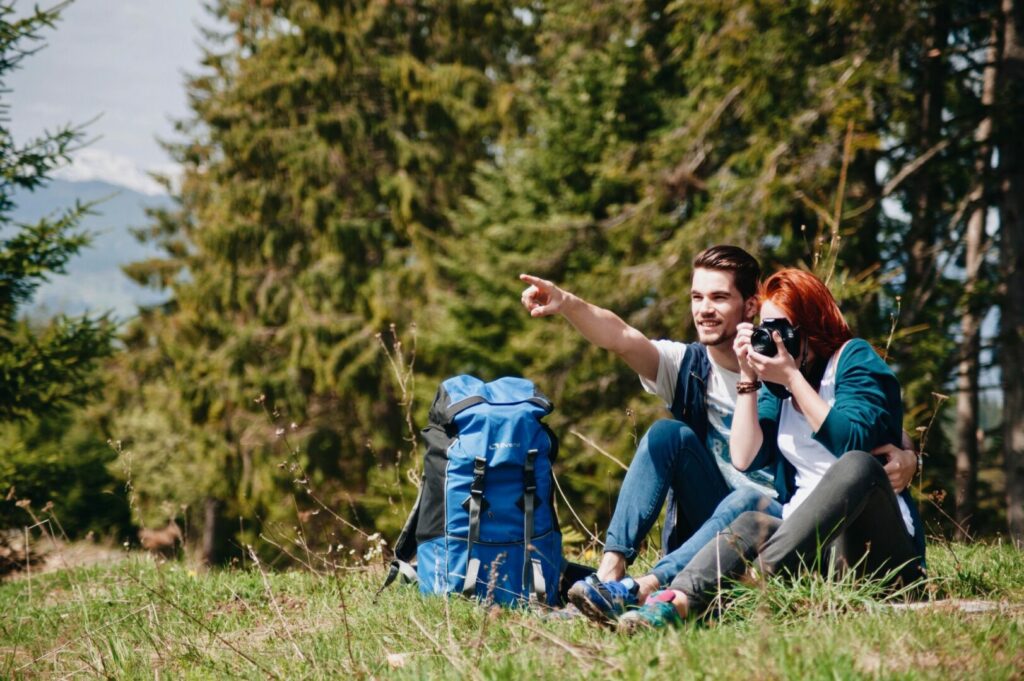
How to Avoid Overcrowded Campgrounds
Don’t pack up the Airstream and go home just yet. You’ll find many ways to find the perfect campsite if you adopt new tactics.
Here are a few suggestions to help you discover a site to avoid the crowds and experience unique destinations.
Plan Ahead and Book Early
As stated before, book your campsite as soon as you know your travel plans. Sometimes that is easier said than done, but don’t put off securing a reservation when you know where you’ll travel.
Some campgrounds may accept reservations for specific dates. Then if your arrival plans change by a day or two, they may accommodate you, so call them directly.
Keep in Mind: Avoid the crowds with our 17 Secrets to Avoiding Crowds on a Road Trip!
Join Harvest Hosts/Boondockers Welcome
Harvest Hosts and Boondockers Welcome offer unusual camping experiences to self-contained RVers. You must first have a membership, giving you access to all camping locations.
For Harvest Hosts members, these destinations include vineyards, distilleries, museums, golf courses, farms, and wineries, among others. You usually won’t find any hookups, but you may get to camp in a lavender field or overlooking a vineyard.
However, the hosts usually expect you to purchase something during your stay, like a bottle of wine or a museum tour. While you’re not technically paying a nightly fee, you are supporting small local businesses.
Boondockers Welcome, owned by the same company, connects traveling RVers with those with space for an RV at their homes. RVers usually host these destinations, and some even have hookups.
It has no extra fees unless a member asks for a nominal payment for electricity. So if you find yourself stuck on the road with no campsites available at the local campground, you might consider a Harvest Host or Boondockers Welcome destination nearby.
Try Boondocking
You should have a rig that has deep cycle batteries or a generator to try your hand at boondocking. You can set up your RV on numerous public lands, such as national forests and Bureau of Land Management sites, which allow free camping.
However, you must be self-contained with water and power from a solar setup or a generator. Check with Campendium, FreeCampsites, or the Allstays Pro app to find boondocking sites around the country.
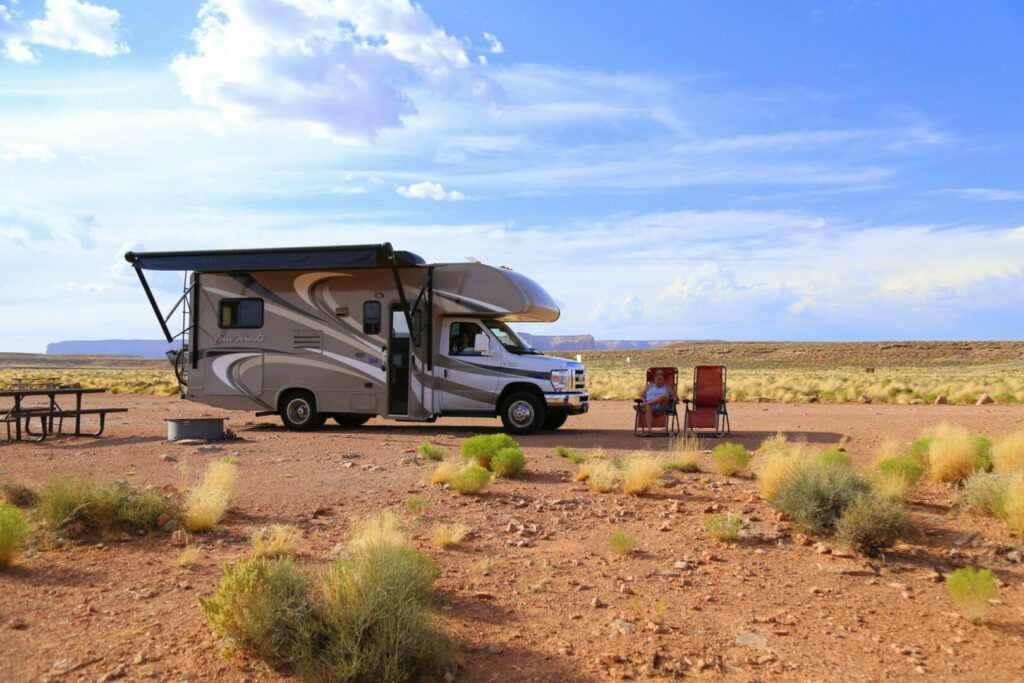
Explore Campground Memberships
Campground memberships can give you a leg up on the competition with groups like Thousand Trails or Escapees, where you can stay in membership campgrounds for free or for a small fee.
It will usually have a stay limit, depending on the membership purchased. But with Escapees, you can buy a lot in one of the campgrounds while paying a nominal fee to visit some of the other sites.
Some membership programs offer a discount to participating campgrounds. These would include Good Sam and Passport America. But because they offer discounts of up to 50% on a few nights, those particular campgrounds may also fill up.
So have several weapons in your arsenal when looking for a campsite.
Pro Tip: Want to know Which Camping Memberships Have Saved RVers the Most? Click the link to find out!
Travel Less and Stay Longer
If you stay longer, many campgrounds offer discounts and may have sites set aside for long-term RVers.
So, rather than travel from campground to campground, consider using one campsite as your home base to see all the attractions nearby.
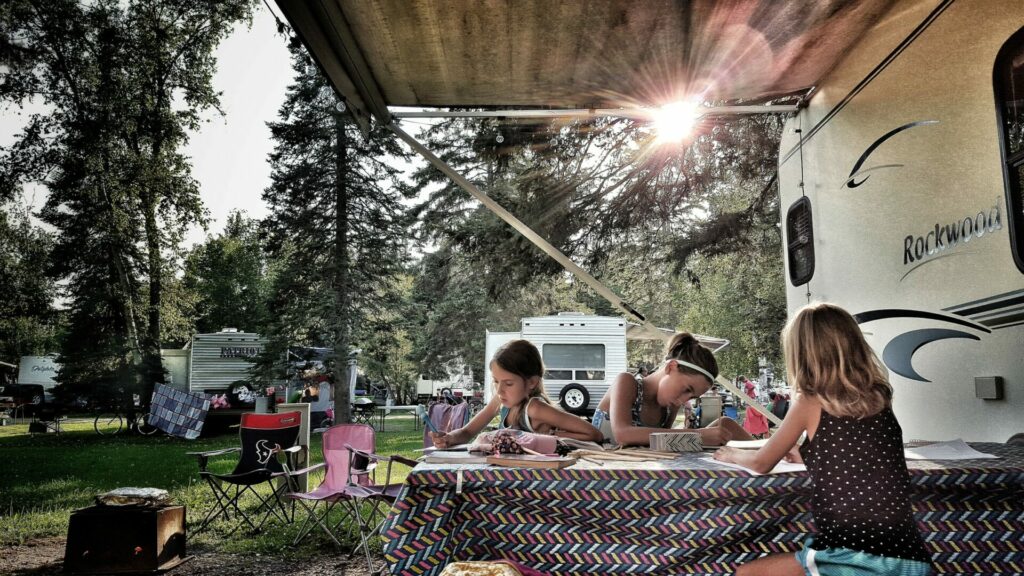
Will Camping Ever Get Back to the Way It Used to Be?
We don’t have a crystal ball, but it appears that RVers are here to stay — for at least the next year or two.
If history is any example, though, eventually, some will tire of the lifestyle, and others will see the need to move on to another form of travel.
For now, just do your due diligence when looking for a campsite while all this RV commotion settles down. And be flexible in your camping style so you can always find a place to park your rig and enjoy RVing.





